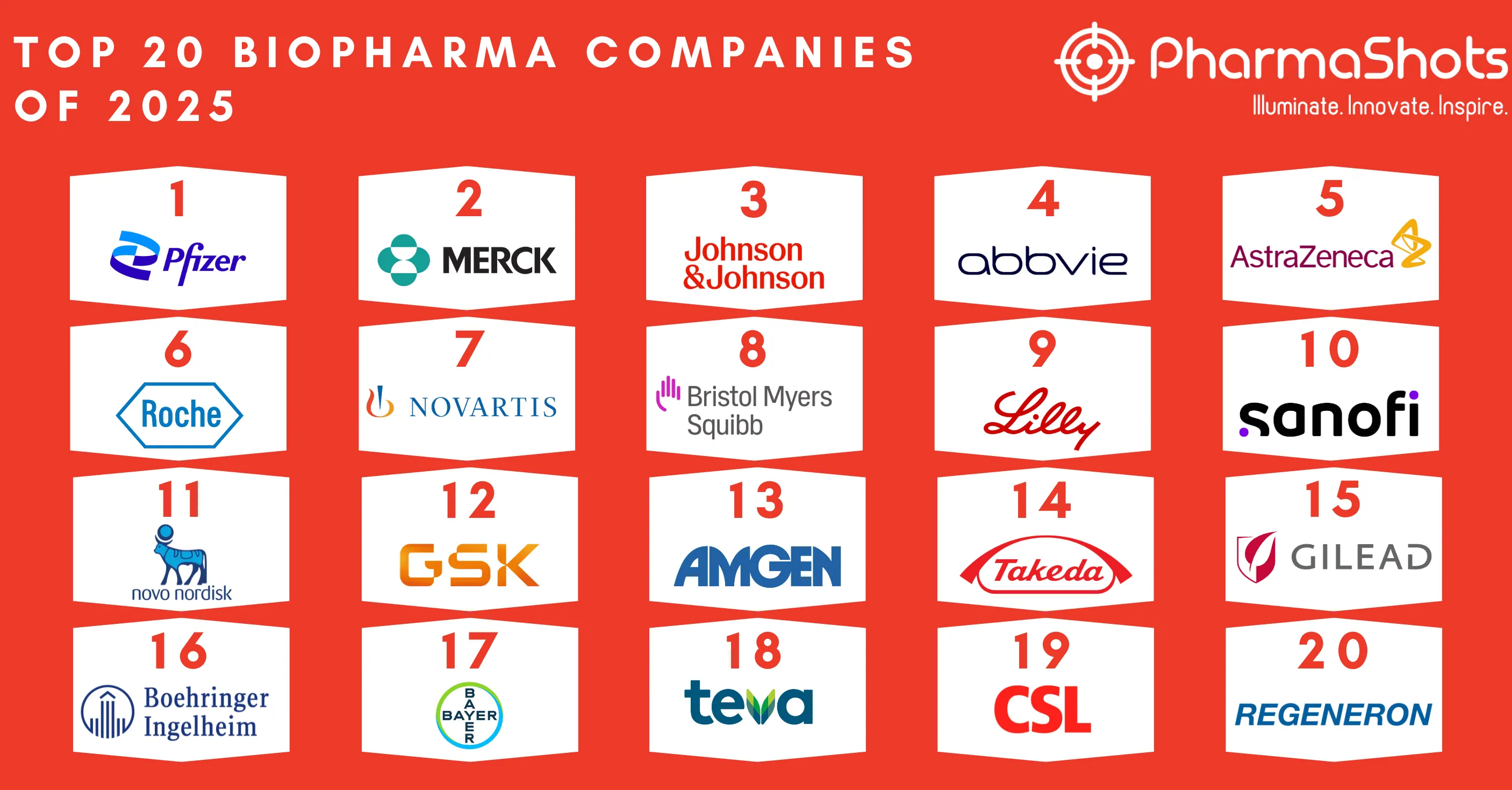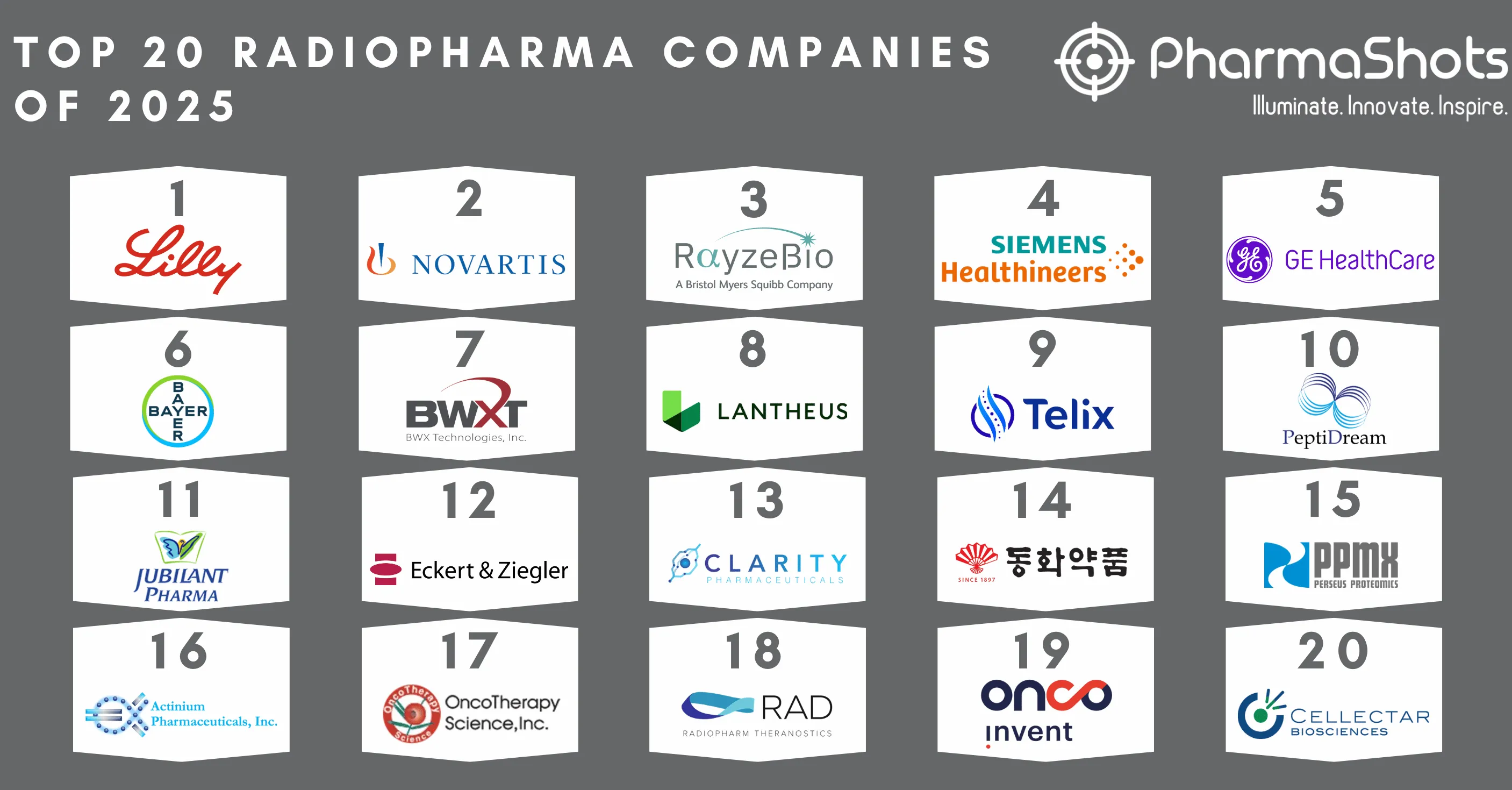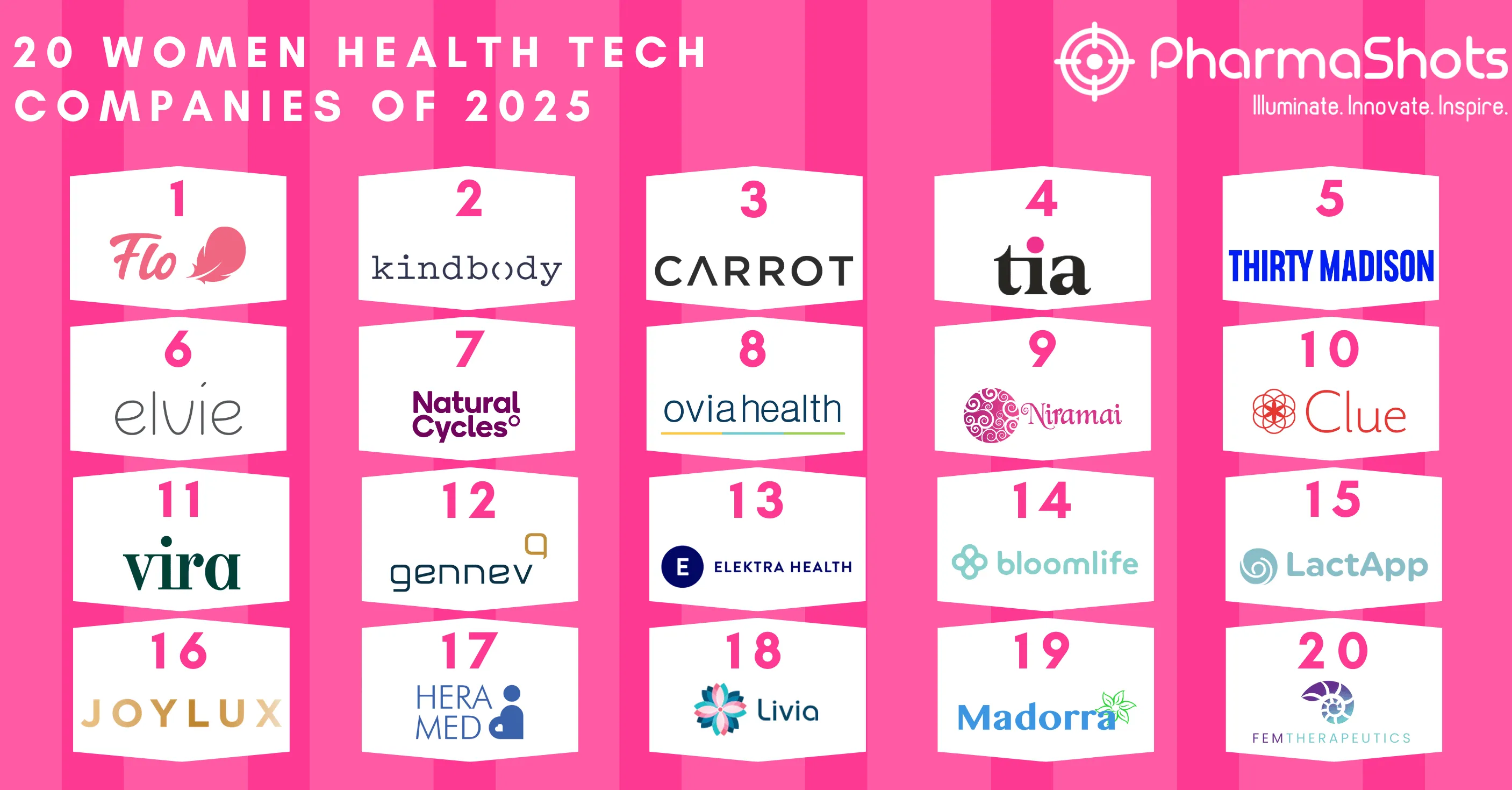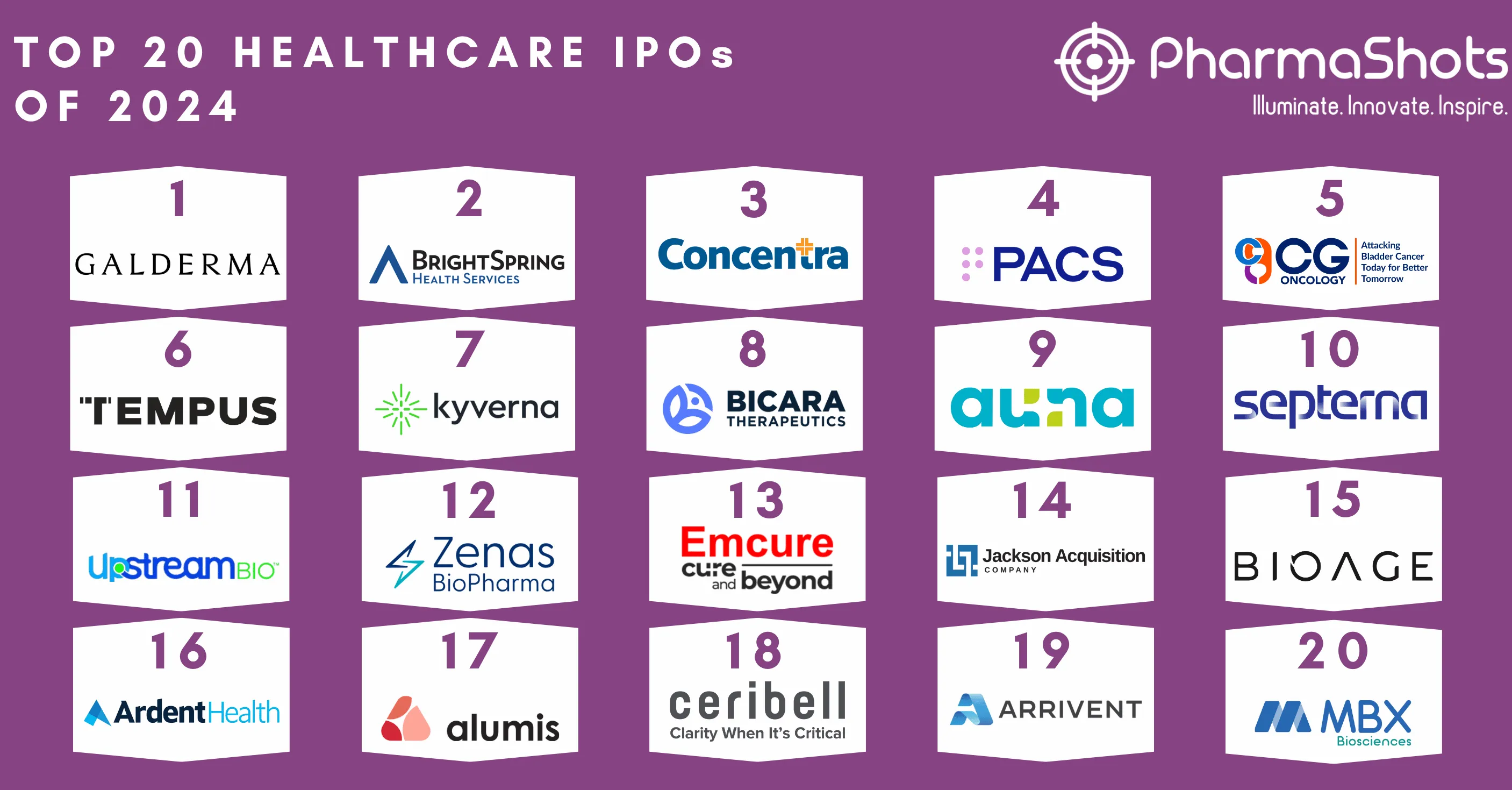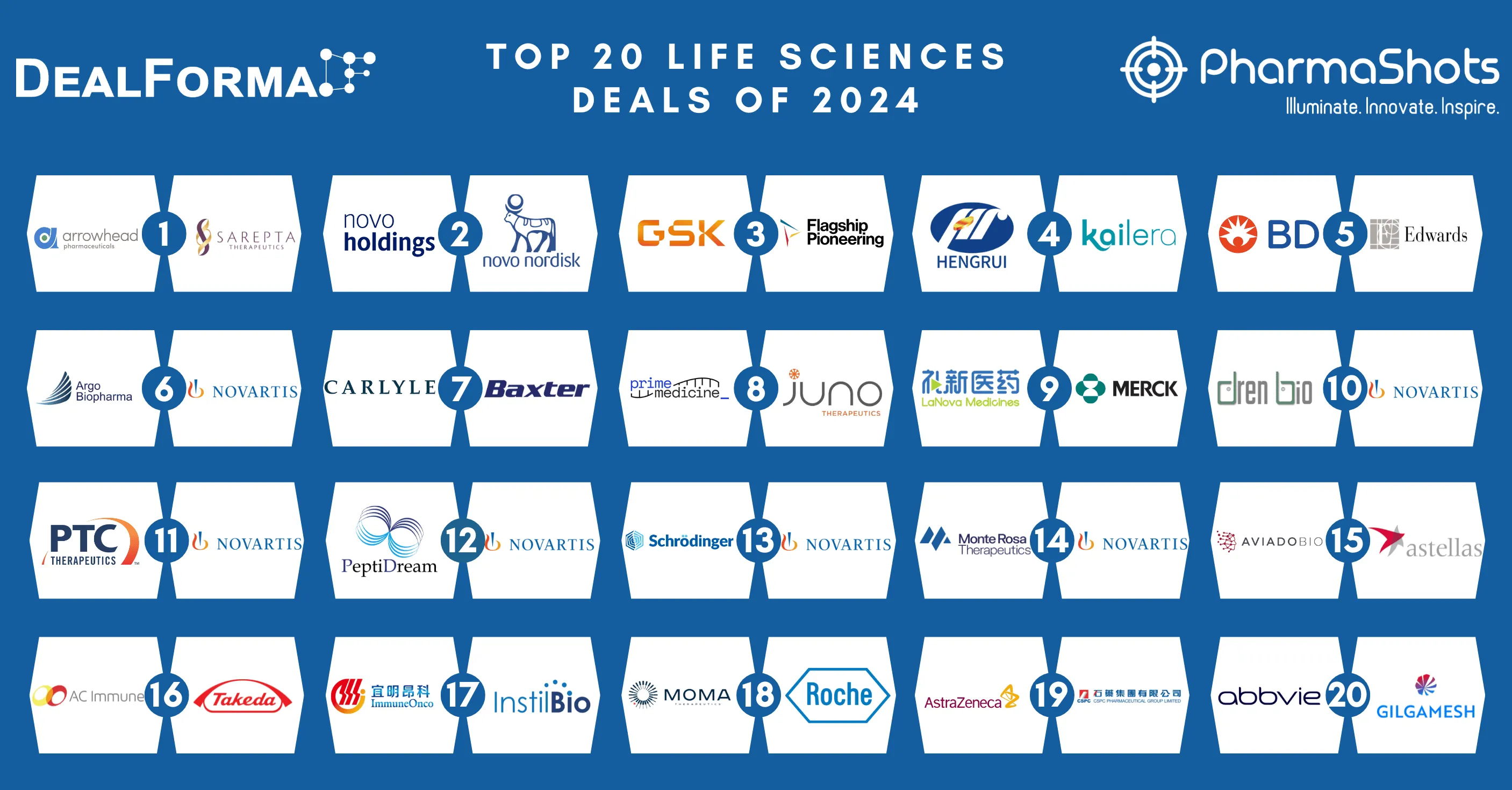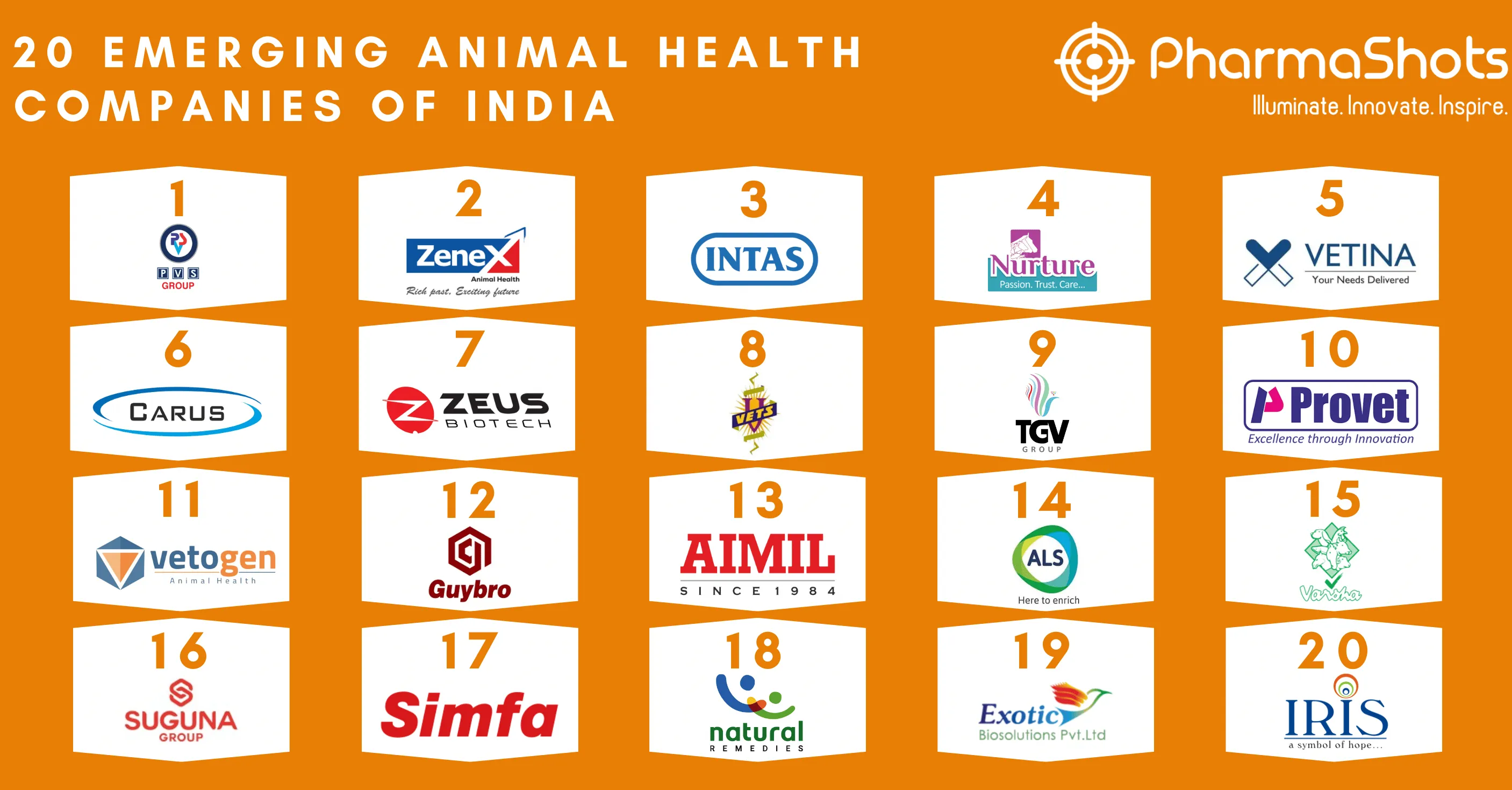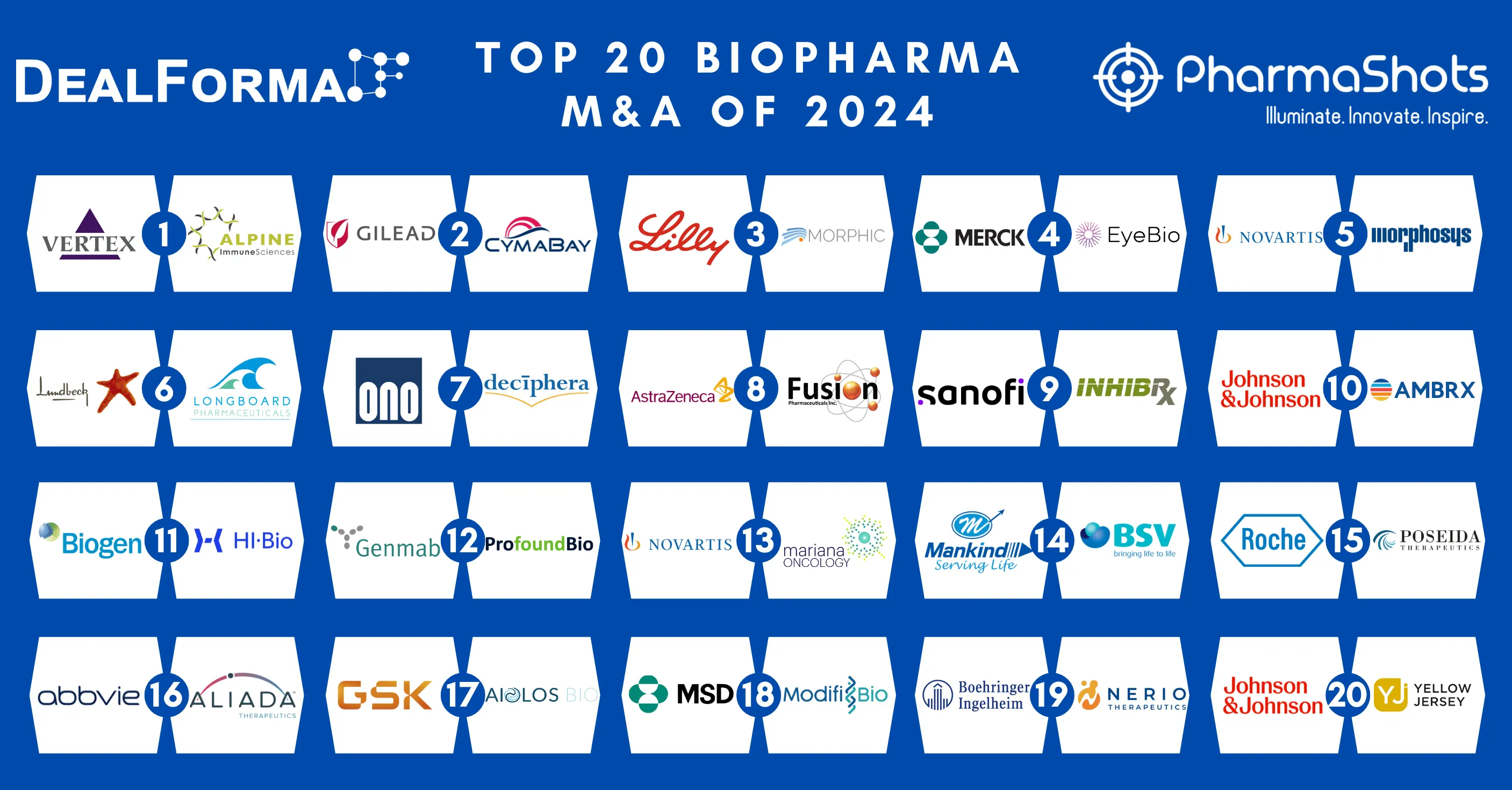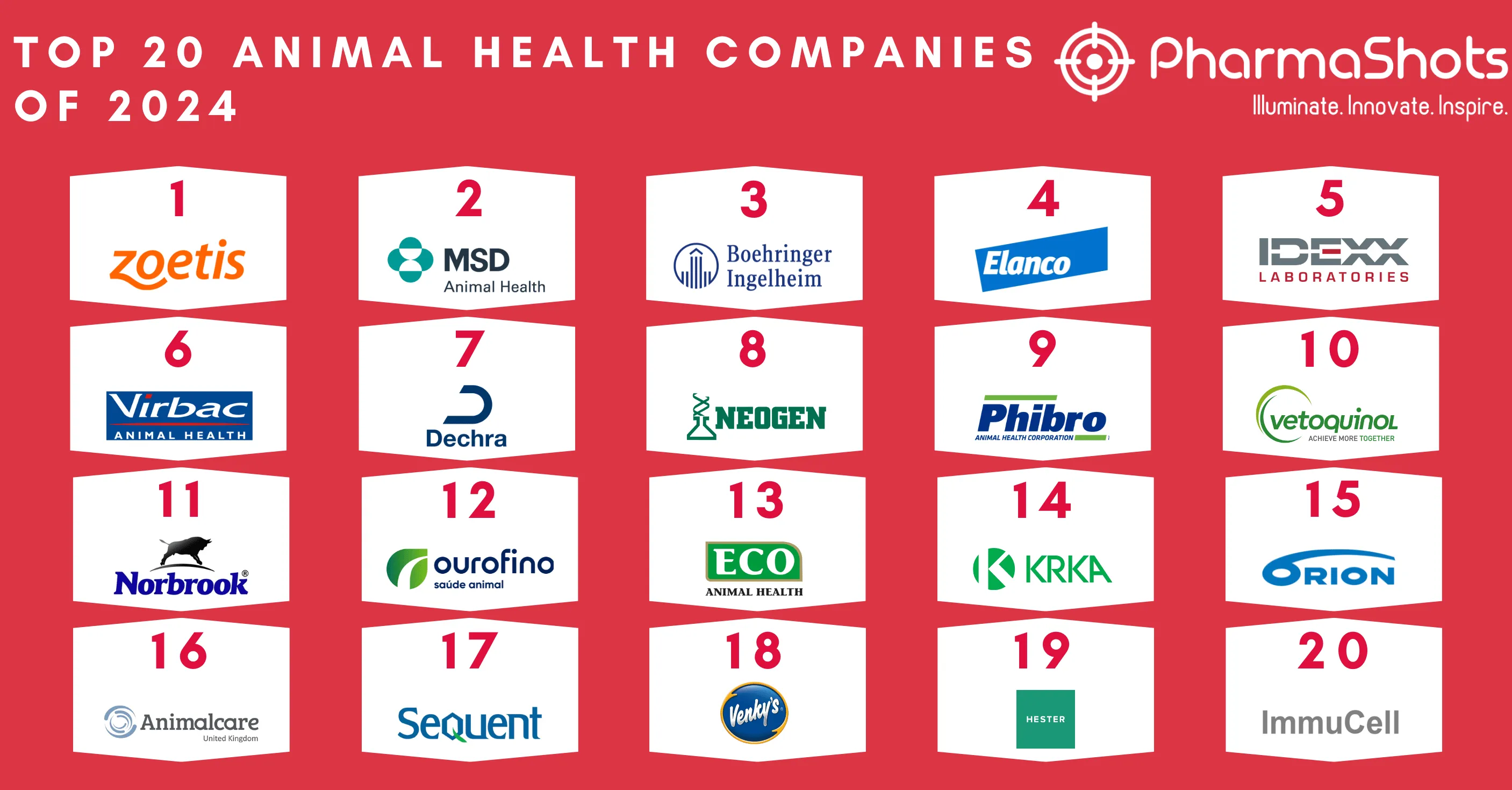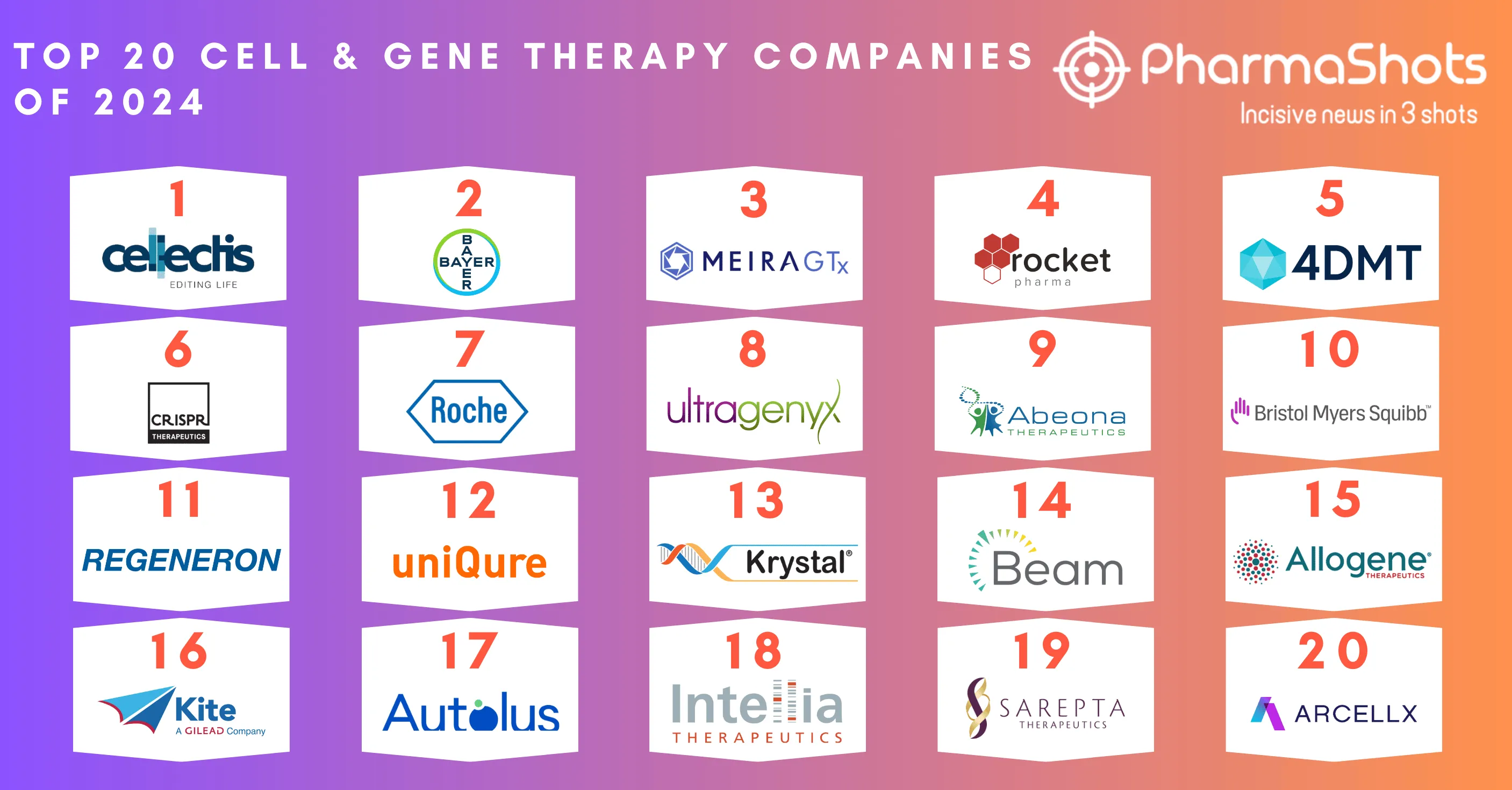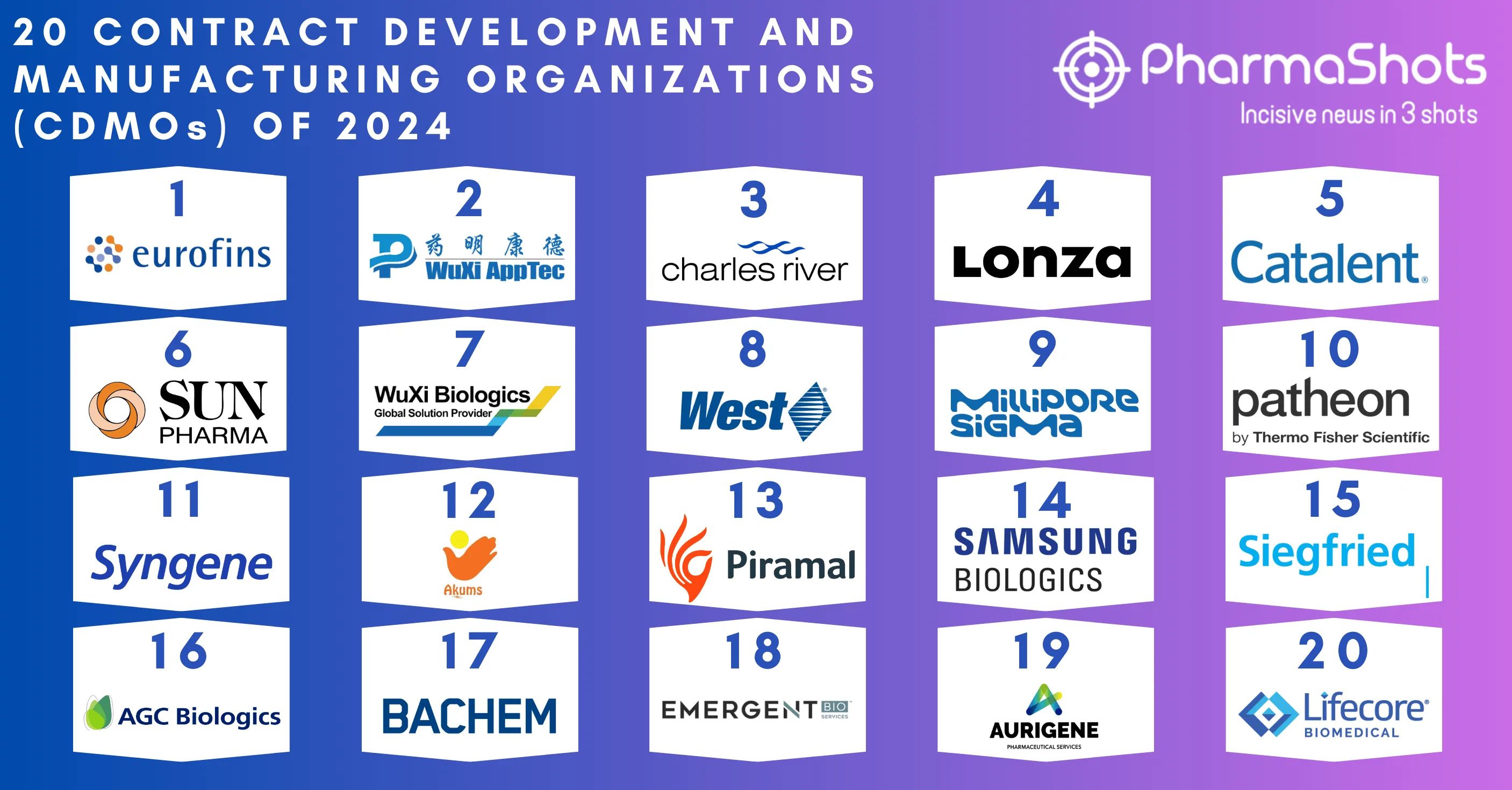
Top 20 Life Sciences Deals of 2021 by Total Deal Value
Shots:
- The life science industry saw high deal activity in 2021 staying in the range of an even busier 2020.
- Fourth-quarter 2021 set the tone with Recursion’s development and commercialization deal with Roche and Genentech for a total value of $12.7B, followed by Poseida Therapeutics’ development and commercialization deal with Takeda for $3.73B.
- This article is based on the 2021 biotech and pharma deals data as provided by Chris Dokomajilar of DealForma. Our team at PharmaShots aggregated the top 20 deals in healthcare and life sciences by the disclosed total deal value in R&D partnerships.
.png)
20. KSQ Therapeutics’ Development and Commercialization Deal with Takeda
Deal Date: Jan. 13, 2021
Deal Value: $1.7B
KSQ Therapeutics granted Takeda exclusive rights to develop and commercialize T-cell targets for immuno-oncology. KSQ will apply its CRISPRomics discovery platform to develop four programs including validation for two programs. The partners will collaborate to develop additional natural killer (NK) cells. The companies are jointly responsible for the development of the product till IND enabling studies and Takeda will assume all further development and commercialization. KSQ will have an option to co-commercialize one of the products in the US for profit sharing. KSQ Therapeutics received $100M in up front and near- term preclinical milestones and is eligible to receive up to $400M in clinical regulatory and sales milestones per target, plus royalties.
.png)
19. REGENXBIO’s Development and Commercialization Deal with AbbVie
Deal Date: Sep. 13, 2021
Deal Value: $1.75B
REGENXBIO granted AbbVie exclusive, worldwide rights to develop and commercialize RGX-314 to treat wet age-related macular degeneration (wet AMD), diabetic retinopathy, and other chronic retinal diseases. REGENXBIO will be responsible for the completion of the ongoing trials of RGX-314. In addition, AbbVie and REGENXBIO will collaborate and share costs on additional trials of RGX-314, including the planned second pivotal trial evaluating sub retinal delivery for the treatment of wet AMD. AbbVie will lead the clinical development and commercialization of RGX-314 globally. REGENXBIO received $370M up front and is eligible for up to $1.4B in development, regulatory, and commercial milestones. The companies will share the pre-tax profits equally in the US and tiered royalties in the rest of the world.
.png)
18. Artiva Biotherapeutics’ Development and Commercialization Deal with Merck
Deal Date: Jan. 28, 2021
Deal Value: $1.9B
Artiva Biotherapeutics granted Merck exclusive, worldwide rights to develop and commercialize three allogeneic natural killers (NK) cell therapies for the treatment of cancer. Artiva will apply its proprietary off-the-shelf allogeneic NK cell and CAR technology platform. Artiva received $30M up front for the first two programs. Artiva will receive an additional $15M if Merck exercises its option for the third program. Artiva is eligible to receive contingent milestone payments of up to $217.5M in developmental milestones, up to $570M in regulatory milestones, and up to $1.05B in sales-based milestones, plus royalties ranging from 7% to 14%.
.png)
17. Kumquat Biosciences’ Development and Commercialization Deal with Eli Lilly
Deal Date: Jul. 29, 2021
Deal Value: $2.07B
Kumquat Biosciences granted Eli Lilly and its subsidiary Loxo Oncology exclusive rights to develop and commercialize novel small molecules that stimulate tumor-specific immune responses. Kumquat will apply its small molecule immuno-oncology (IO) platform. Eli Lilly will have exclusive rights for selected drug candidates worldwide, excluding Greater China. In addition, Kumquat Biosciences will have an option to co-develop and co-commercialize selected drug candidates in the US. Kumquat received $70M up front in a combination of cash and stock and is eligible to receive up to $2B in preclinical, development and commercial milestones, plus royalties.
.png)
16. iTeos Therapeutics’s Development and Commercialization Deal with GlaxoSmithKline
Deal Date: Jun. 14, 2021
Deal Value: $2.075B
iTeos Therapeutics granted GlaxoSmithKline rights to co-develop and commercialize EOS-448 to treat cancer. EOS-448 is a Phase II anti-TIGIT IgG1 mAb which binds to TIGIT and blocks its interaction with certain ligands, including CD155, CD112, and CD226 to activate an immune response from T cells and natural killer cells as part of the checkpoint pathway. In addition, IgG1 binds FcyR and triggers a pro-inflammatory cytokine release and activates antigen-presenting cells and depletion of TIGIT+ Tregs and exhausted T cells. Under the agreement held between the two companies, GSK will share R&D and the U.S. commercialization costs equally and will be fully responsible for ex-US commercialization. iTeos Therapeutics received $625M up front and is eligible to receive up to $1.45B in milestone payments, a 50% cost and profit split in the US, and tiered royalties in the rest of the world.
.png)
15. BeiGene’s Development and Commercialization Deal with Novartis
Deal Date: Jan. 11, 2021
Deal Value: $2.2B
BeiGene granted Novartis exclusive rights to develop and commercialize tislelizumab to treat cancer in the United States, Canada, Mexico, the European Union, United Kingdom, Norway, Switzerland, Iceland, Liechtenstein, Russia, and Japan. Tislelizumab is an anti-PD-1 monoclonal antibody specifically designed to minimize binding to FcγR on macrophages. BeiGene will be responsible for ongoing clinical study and Novartis will fund the new clinical studies. In addition, the partners will retain the right to commercialize its proprietary products in combination with tislelizumab. BeiGene received $650M up front and is eligible to receive up to $1.3B in development and regulatory milestones and up to $250M in sales milestones, plus royalties.
.png)
14. Alector’s Development and Commercialization Deal with GSK
Deal Date: Jul. 2, 2021
Deal Value: $2.2B
Alector granted GSK exclusive, worldwide rights to co-develop and commercialize AL-001 and AL-101 for neurodegenerative diseases, including frontotemporal dementia, amyotrophic lateral sclerosis, Parkinson’s disease, and Alzheimer’s disease. Alector and GSK will jointly develop the program with 60% contribution from GSK and 40% from Alector. GSK will lead the phase III study for Alzheimer’s and Parkinson’s disease and non-orphan indications. Alector will lead the global development of AL-001 and AL-101 in orphan indications. Alector will be solely responsible for the initial phase II study. The companies will share the clinical manufacturing cost equally. Alector and GSK will be jointly responsible for commercialization in the US. Alector book the sale for orphan indications and GSK will be responsible for non-orphan indications, including Parkinson’s disease, and Alzheimer’s disease plus ex-US commercialization for all indications. Alector may elect to opt out from co-development in an exchange of royalties. Alector received $700M up front ($500M received in Q3 2021 and $200M expected in Q1 2022) and is eligible to receive up to $1.5B in milestone payments. The partners will share profits equally in the US and tiered royalties in the rest of the world.
.png)
13. PeptiDream’s Development and Commercialization Deal with Alnylam
Date: Jul. 29, 2021
Deal Value: $2.2B
PeptiDream granted Alnylam rights to develop and commercialize peptide-siRNA conjugates. PeptiDream will apply its peptide discovery platform to deliver RNAi therapies to tissues outside the liver. In addition, PeptiDream received an undisclosed upfront, R&D funding and is eligible for up to $2.2B (¥244B) in development, regulatory, and commercial milestones, plus undisclosed low-to-mid single-digit royalties.
.png)
12. Arvinas’ Development and Commercialization Deal with Pfizer
Deal Date: Jul. 22, 2021
Deal Value: $2.4B
Arvinas granted Pfizer exclusive, worldwide rights to co-develop and co-commercialize ARV-471 for the treatment of estrogen receptor (ER) positive or human epidermal growth factor receptor 2 (HER2) negative (ER+/HER2-) locally advanced or metastatic breast cancer. ARV-471 is an oral investigational PROTAC (PROteolysis TArgeting Chimera) estrogen receptor protein degrader. Arvinas received $650M in upfront cash and $350M in its common stock by issuing 3.5M newly issued shares at a 30% premium. Pfizer owns approximately a 7% stake of Arvinas. Additionally, Arvinas is eligible for up to $400M in approval milestones and up to $1B in commercial milestones. Arvinas and Pfizer will equally share development and commercialization costs and profits.
.png)
11. Bridgebio Pharma’s Development and Commercialization Deal with Helsinn Group
Deal Date: Mar. 31, 2021
Deal Value: $2.45B
Bridgebio Pharma and its subsidiary QED Therapeutics granted Helsinn exclusive rights to develop and commercialize QED Therapeutics’ FGFR1-3 inhibitor, infigratinib for cancer treatment excluding skeletal dysplasias. Helsinn will have the worldwide rights for infigratinib excluding Greater China, where Bridgebio licensed the rights to LianBio in Aug 2020. QED will co-promote the drug in the US. QED is eligible to receive payments up to $2.45B in aggregate (more than $100M of the $2.45B relates to up front, regulatory, and launch milestone payments) and the rest subject to the achievement of specified commercial milestones, plus tiered high teen royalty in licensed territories excluding the US where the companies will share the profit and loss equally.
.png)
10. RemeGen’s Development and Commercialization Deal with Seagen
Deal Date: Aug. 9, 2021
Deal Value: $2.6B
RemeGen granted Seagen exclusive, worldwide rights to co-develop and commercialize HER2-targeted ADC, disitamab vedotin to treat several solid tumor types, including urothelial, gastric, and breast cancer. RemeGen will retain development and commercialization rights in Asia excluding Japan and Singapore and be responsible for all regulatory submissions specific to its territory. Seagen will lead global clinical development and RemeGen will fund and operate clinical trials attributable to its territory. RemeGen received $200M upfront and is eligible for up to $195M in development milestones and up to $2.2B in commercial milestones based on achieving specified regulatory and commercialization goals plus undisclosed high single-digit to mid-teen tiered, percentage royalties.
.png)
9. Sosei Heptare’s Development and Commercialization Deal with Neurocrine Biosciences
Deal Date: Nov. 22, 2021
Deal Value: $2.7B
Sosei granted Neurocrine rights to develop and commercialize a portfolio of novel clinical and preclinical subtype-selective muscarinic M1, M4, and dual M1/M4 receptor agonists, including HTL-0016878 for the treatment of dementia, schizophrenia, and other types of neuropsychiatric disorders. The companies will jointly conduct the studies to advance preclinical candidates through P1 clinical studies. Neurocrine Biosciences will fund the R&D collaboration. In addition, Sosei retains the right to develop M1 agonists in Japan in all indications, granting Neurocrine co-development and profit share options. Sosei received $100M in upfront payment and is eligible for up to $1.5B in development & regulatory milestones and $1.1B in commercial milestones, plus tiered royalties ranging from high single digit to mid-teen percentage.
.png)
8. BeiGene Research Partnership with Novartis with an Option to License Ociperlimab
Deal Date: Dec. 20, 2021
Deal Value: $2.9B
Novartis signed a research partnership with BeiGene to develop Ociperlimab (BGB-A1217), with an exclusive option to license the program in the United States, Canada, Mexico, the European Union, United Kingdom, Norway, Iceland, Liechtenstein, Switzerland, Russia, and Japan. BeiGene retains rights in the rest of the world. Ociperlimab is a late-stage TIGIT inhibitor for cancer treatment in PIII for non-small cell lung cancer (NSCLC). It is currently being explored for multiple indications in solid tumors, including lung, esophageal, gastric, breast cancer, and melanoma. Once Novartis exercises its option, the partners will jointly develop the program in the licensed territory with Novartis sharing global development costs. They will be responsible for regulatory submission following the transition period. During the option period, the partners will collaborate on the clinical development of ociperlimab in combination with tislelizumab. Novartis will design, sponsor, and fund the global combination clinical trials. Both Novartis and BeiGene retain the worldwide right to commercialize their own products in combination with ociperlimab. BeiGene will initially be responsible for supplying ociperlimab to Novartis. Additionally, BeiGene agreed to expand the enrolment in two ongoing trials. The partners may conduct clinical trials worldwide to explore potential combinations of ociperlimab. BeiGene will contribute 50% of the co-detailing and co-field medical efforts in the US and 25% in Canada and Mexico. BeiGene received a $300M upfront payment, option payment at a range of $600M to $700M based exercise period before mid-2023 or late-2023, and is eligible to receive up to $745M in regulatory milestones and up to $1.15B in sales milestones, plus tiered royalties.
.png)
7. Shape Therapeutics’ Development and Commercialization Deal with Roche
Deal Date: Aug. 24, 2021
Deal Value: $3.0B
Shape Therapeutics granted Roche worldwide rights to develop and commercialize products to treat Alzheimer’s disease, Parkinson’s disease, and rare diseases. Shape Therapeutics' will apply its RNA editing platform, RNA fix, and the AAVid technology platform. Shape Therapeutics will be responsible for the discovery and preclinical research. Roche will further develop and commercialize the product. Shape Therapeutics received an undisclosed up front and is eligible for up to $3B in development, regulatory and sales milestones.
.png)
6. Eisai’s Development and Commercialization Deal with Bristol Myers Squibb
Deal Date: Jun. 17, 2021
Deal Value: $3.15B
Eisai granted BMS exclusive, worldwide rights to develop and commercialize MORAb-202 for the treatment of solid tumors including endometrial, ovarian, lung, and breast cancers. MORAb-202 is Eisai’s first ADC which combines in house developed anti-folate receptor alpha (FRα) antibody and anticancer agent eribulin by using enzyme cleavable linker. MORAb-202 is a FRα ADC currently in phase I clinical study in Japan and phase I/II study in the US. The companies will jointly develop and commercialize the drug in the US, Canada, Europe, Japan, China, Russia, and countries in the Asia-Pacific region termed as collaboration territories. BMS will solely responsible for the development in the rest of the world. Eisai will book the sale in, Europe, Japan, China, Russia, and countries in the Asia-Pacific region and BMS will book the sale in the US and Canada in the collaboration territories. Eisai will retain the rights to manufacture and supply MORAb-202 globally. Eisai received $650M up front ($200M of the $650M associated with research and development expenses). Eisai is also eligible to receive up to $2.5B in contingent development, regulatory and sales-based milestones. The companies will share the costs and profit in the collaboration territories and royalties in the rest of the world.
.png)
5. Adaptimmune’s Development and Commercialization Deal with Genentech
Deal Date: Sep. 3, 2021
Deal Value: $3.3B
Adaptimmune granted Genentech rights to develop and commercialize allogeneic cell therapies for up to five shared cancer targets and personalized allogeneic T cell therapies. Adaptimmune will conduct clinical development using its induced pluripotent stem cell (iPSC) derived allogeneic platform. Genentech will be responsible for the input TCRs and subsequent clinical development and commercialization. Adaptimmune received $150M up front, an additional $150M over five years, and is eligible to receive up to $50M in research milestone, $100 M in development milestone per off-the-shelf T-cell therapies (unless Adaptimmune exercise for profit share), $200M for personalized T-cell therapies, $1.1B in commercialization milestone (unless Adaptimmune exercise for profit share) and $1.5B in sales milestones (unless Adaptimmune exercise for profit share), plus tiered mid-single to low-double digits royalties. In addition, Adaptimmune will have an option to opt for co-development and co-promotion for off-the-shelf products in an exchange of 50% profit in the US and up to $800M ex-us regulatory and sales milestones, plus royalties.
.png)
4. PeptiDream’s Development and Commercialization Deal with Takeda
Deal Date: Jul. 26, 2021
Deal Value: $3.5B
PeptiDream granted Takeda exclusive, worldwide rights to develop and commercialize peptide-drug conjugates (PDCs) for CNS indications in chronic neurodegenerative diseases. This is a major expansion of an original 2020 partnership between PeptiDream and Takeda (the collaboration is to develop PDCs for neuromuscular disease, peptides developed by PeptiDream and JCR for specific drug payloads selected by Takeda). This new collaboration expands the TfR1 binding peptide ligands for CNS targets associated with neurodegeneration, allowing Takeda to conjugate the peptides with therapeutic cargoes optimized to cross the blood-brain barrier (BBB). In addition, PeptiDream may receive up to a total of $3.5B (JPY 390.3B) in up front and milestone payments, plus royalties.
.png)
3. Ionis’ Development and Commercialization Deal with AstraZeneca
Deal Date: Dec. 7, 2021
Deal Value: $3.59B
Ionis granted AstraZeneca exclusive, worldwide ex-Latin America rights to develop and commercialize its antisense medicine, eplontersen, formerly known as IONIS-TTR-L. Ionis will apply its Ligand-Conjugated Antisense (LICA) technology to treat transthyretin amyloidosis (ATTR). Both companies will co-develop and co-commercialize eplontersen in the US, whereas AstraZeneca has an exclusive license in the rest of the world, excluding certain countries in Latin America. Ionis received a $200M upfront payment and is eligible for up to $485M in development and approval milestones and up to $2.9B in sales-related milestones on sales thresholds between $500M to $6B, plus low double-digit to mid-20s royalties based on region. Additionally, Ionis and AstraZeneca will share territory-specific development and commercial and medical affairs costs.
.png)
2. Poseida Therapeutics’ Development and Commercialization Deal with Takeda
Deal Date: Oct. 12, 2021
Deal Value: $3.73B
Poseida Therapeutics granted Takeda exclusive rights to develop and commercialize up to eight non-viral in vivo gene therapy programs, including its haemophilia A program to treat rare genetic and hematologic diseases. Poseida will apply its piggyBac, Cas-CLOVER, biodegradable DNA and RNA nanoparticle delivery technology and genetic engineering platforms. The companies will initially develop up to six in vivo gene therapy programs for liver- and hematopoietic stem cell (HSC)- directed indications. Poseida will lead research activities up to candidate selection, after which Takeda will be responsible for development and commercialization. Takeda has the option to add two additional programs and will also provide research funding for all collaboration programs excluding the cost associated with the platform development. Poseida received $45M up front and is eligible to receive up to $80M in preclinical milestones, up to $3.6B in clinical development, regulatory, and commercial milestones ($2.7B of the $3.6B relates to the achievement for the initial six programs), plus tiered double-digit royalties.
.png)
1.Recursion’s Development and Commercialization Deal with Roche and Genentech
Deal Date: Dec. 7, 2021
Deal Value: $12.7B
Recursion granted Roche and Genentech exclusive rights to develop and commercialize up to 40 small molecule programs in gastrointestinal cancer and neurology. Recursion will apply its Recursion Operating System, a drug discovery platform that applies machine learning and high-content screening methods to generate, analyse and glean insights from large-scale proprietary biological and chemical datasets. In the ongoing research, the partners will combine Roche's sequencing datasets and Recursion’s Phenomaps to generate new algorithms to produce multi-modal maps to identify novel therapies. If Roche does not exercise its options for certain programs, Recursion can develop the program independently upon Roche's prior consent to exchange milestone payments plus royalties. In addition, Recursion will be responsible for creating a certain number of Phenomaps and for giving access to pre-existing human umbilical vein endothelial cells (HUVEC) Phenomap. Roche will have the option to request 16 Phenomaps and have the external use option for 12 Phenomaps. Recursion received $150M up front and $250M as an initiation fee for Phenomaps, $250M as an exercise fee for Phenomaps and is eligible to receive up to $300M per program in development, regulatory, and sales milestones (approximately $12B if all programs were exercised), plus tiered mid- to high-single-digit royalties.
Related Post: Top 20 Life Sciences Deals of 2020 by Total Deal Value
Tags

This content piece was prepared by our former Senior Editor. She had expertise in life science research and was an avid reader. For any query reach out to us at connect@pharmashots.com




